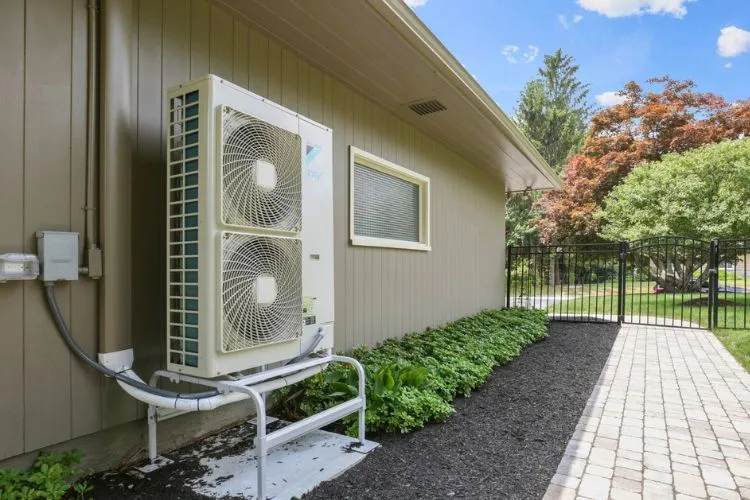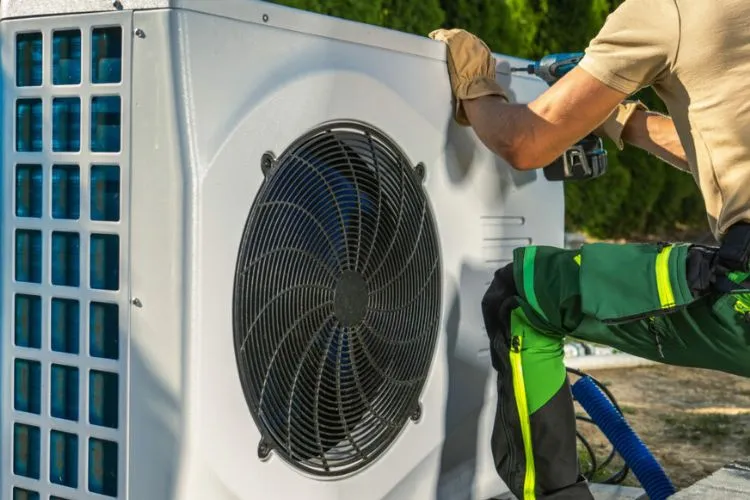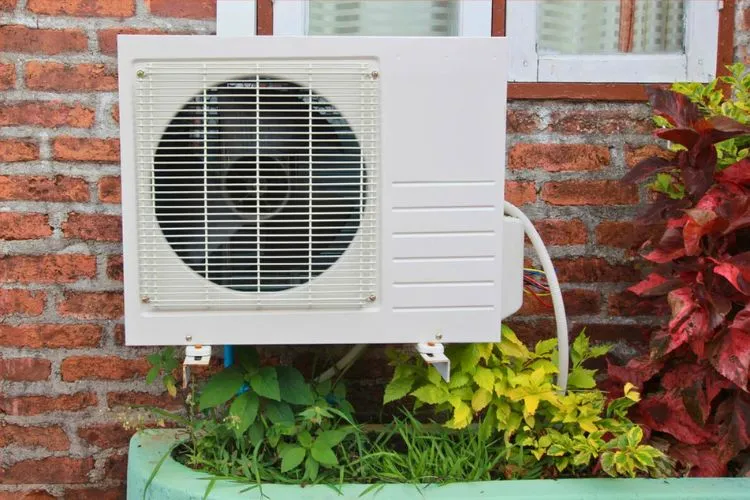As the world gravitates towards more sustainable and energy-efficient solutions, heat pumps emerge as a compelling choice for home heating.
These systems not only provide heating but can also cool your home, making them versatile throughout the year.
But, can you heat your house with a heat pump?
This article delves into the viability of heating your house with a heat pump, comparing it with traditional systems, and highlighting installation considerations, performance, financial incentives, and their environmental impact.

What is a Heat Pump?
A heat pump transfers heat from a cooler area to a warmer area using the refrigeration cycle, effectively warming or cooling your home depending on the season.
Common types include air-source, ground-source, and water-source heat pumps, each utilizing different heat sources.
The operation revolves around four key components: the compressor, condenser, evaporator, and expansion valve.
This technology stands out for its capacity to efficiently maintain comfortable temperatures indoors, regardless of external conditions.
Heat Pumps vs. Traditional Heating Systems
Unlike furnaces that generate heat through combustion or electric heaters that convert electricity directly to heat, heat pumps move existing warmth from one place to another.
This fundamental difference in operation leads to greater energy efficiency compared to traditional heating systems.
Furthermore, by reducing reliance on fossil fuels, heat pumps offer a greener alternative, contributing to lower carbon footprints and potential cost savings over time.
Can You Heat Your House With A Heat Pump?
Heat pumps excel in various climates, particularly in regions that don’t experience extreme cold. The balance point temperature, where the pump can efficiently meet the heating demand without auxiliary heating, is crucial.
As technology advances, newer models perform admirably even in cooler climates, broadening their applicability.
Installation Considerations
Choosing the right heat pump involves assessing your home’s size, insulation quality, and existing ductwork. Proper installation by professionals ensures the system operates efficiently, providing the desired temperature control.
Costs can vary widely based on the heat pump type and necessary modifications to accommodate the system in your home.
Operating a Heat Pump for Home Heating
For optimal performance, maintaining the correct temperature settings is vital. Regular maintenance extends the lifespan and efficiency of heat pumps.
Modern smart thermostats offer enhanced control, allowing adjustments to temperature settings remotely while optimizing energy use.

Performance in Cold Weather
Advancements in technology allow heat pumps to perform efficiently even in colder climates. However, in extremely cold environments, a backup or hybrid heating system might be necessary to ensure consistent warmth.
Innovative solutions in heat pump design continue to minimize the need for supplementary heating sources.
Financial Incentives & Rebates
Investing in a heat pump can be financially savvy, thanks to various government incentives aimed at promoting energy-efficient appliances.
These rebates can significantly reduce the initial cost, making heat pumps an attractive option for homeowners.
Additionally, the operational savings on utility bills compared to conventional heating systems can be substantial in the long term.
Environmental Impact
The environmental benefits of heat pumps are notable. By leveraging electricity and minimizing fossil fuel consumption, heat pumps significantly reduce greenhouse gas emissions.
This contributes to a reduction in your home’s overall carbon footprint, aligning with broader environmental sustainability goals.
Choosing the Right Heat Pump for Your Home
Choosing the right heat pump for your home involves understanding the differences and benefits of the three primary types: air-source, ground-source, and water-source.

Air-source heat pumps are the most common, widely applicable for their simplicity and cost-effectiveness. These systems extract heat from the air, making them suitable for moderate climates but less efficient in extreme cold.
Ground-source (or geothermal) heat pumps utilize the constant temperature of the ground, offering unparalleled efficiency year-round. They require a significant upfront investment and sufficient land for installation but provide long-term savings and environmental benefits.
Water-source heat pumps draw heat from a nearby water source, such as a lake or well. These systems are highly efficient and less affected by outdoor temperature fluctuations but are limited by proximity to water sources.
Evaluating these options involves considering your climate, site feasibility, initial investment, and long-term energy savings goals.
Each type offers unique advantages, making the right choice dependent on specific home heating needs and environmental conditions.
Frequently Asked Questions (FAQs)
Can heat pumps provide enough heat for large homes?
Yes, with proper sizing and installation, heat pumps can efficiently heat large homes. Technology improvements allow them to meet varying heating demands effectively.
How does the efficiency of heat pumping systems change with temperature?
Efficiency generally decreases as the outside temperature drops. However, advanced models maintain higher efficiency levels in colder weather than older versions.
What are the main maintenance requirements for a heat pump?
Regular maintenance includes checking filters, ensuring proper airflow, and inspecting electrical connections. Annual professional check-ups are recommended to maintain optimal performance.
Are there any downsides to using a heat pump?
In extremely cold climates, a backup heating system might be necessary. The initial cost can also be higher than traditional heating systems, though incentives and operational savings can offset this.
How long does a heat pump system typically last?
With proper maintenance, a heat pump can last up to 15 years, offering a long-term heating and cooling solution.
Conclusion:
In conclusion, heating your house with a heat pump is not only feasible but beneficial on several fronts.
Heat pumps stand out for their efficiency, ability to reduce environmental impact, and potential cost savings over time.
With advancements in technology, they are becoming increasingly effective in diverse climates, including colder regions.
Therefore, for homeowners looking for an energy-efficient, sustainable, and cost-effective heating solution, heat pumps present a compelling choice.
Embracing this technology can significantly contribute to meeting heating needs while aligning with broader environmental sustainability goals.
